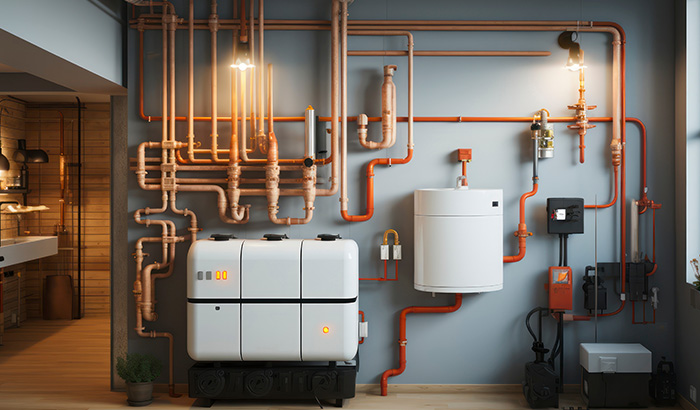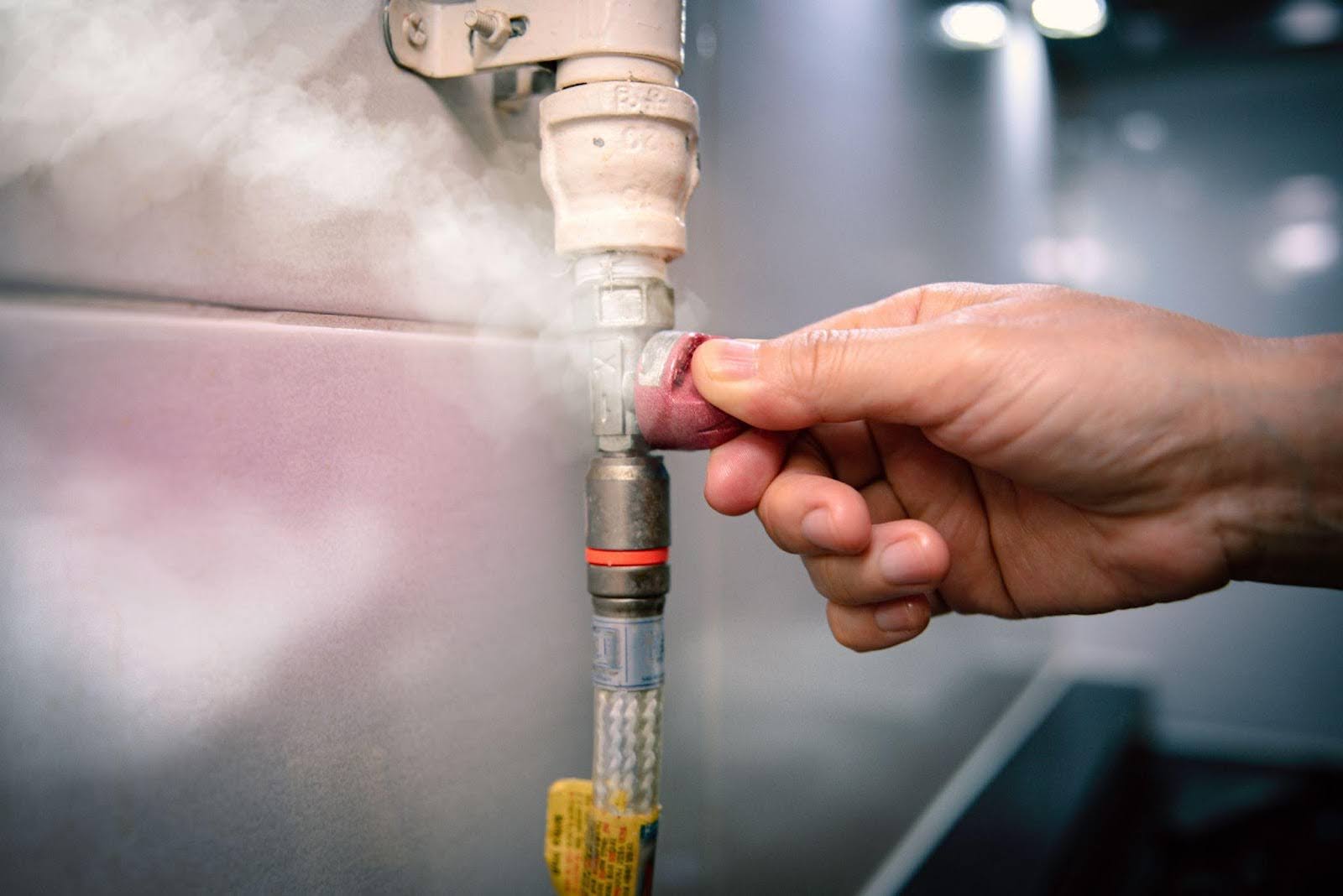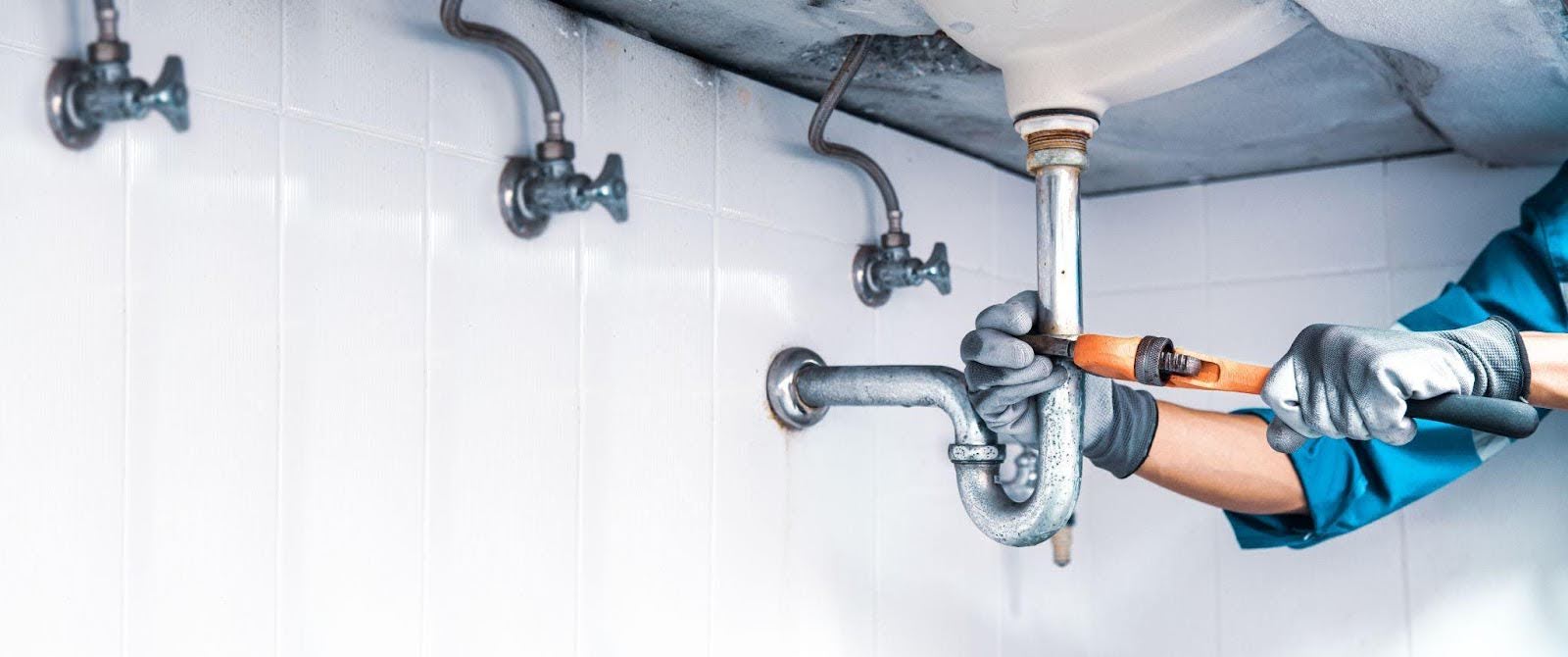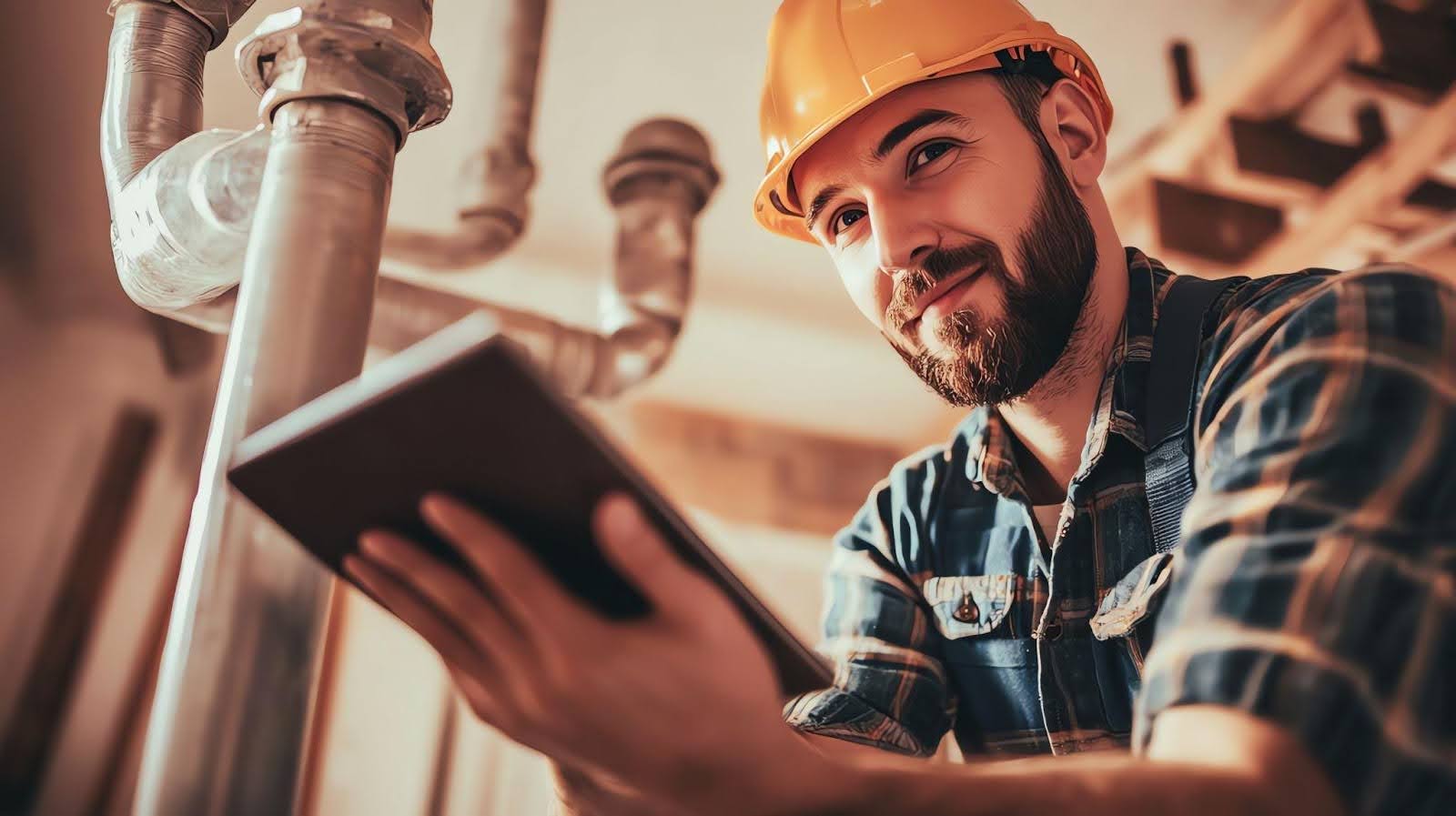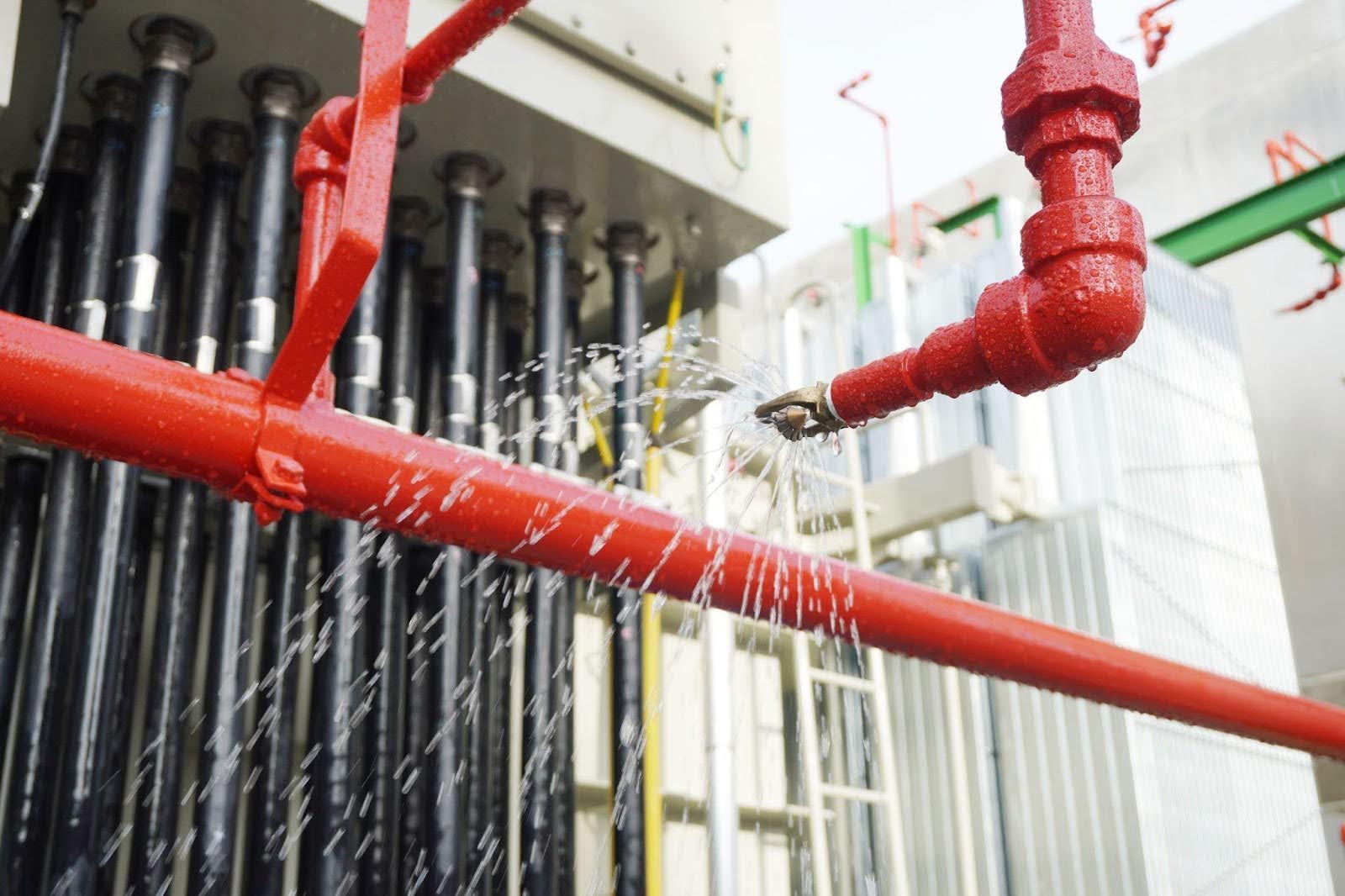Understanding the nuances of gas line installation enhances your home’s functionality and ensures safety and compliance with regulations.
In this guide, we delve into the crucial aspects of this process. From differentiating between types of gas lines to the importance of choosing the right professional for installation, we cover the essential information you need to navigate this complex but essential component of modern living.
This blog aims to equip you with the knowledge and confidence to make informed decisions about gas line installation in your home.
Gas lines: types and uses
In residential settings, two types of gas lines are used, each serving specific purposes: natural and propane.
Natural gas lines
Natural gas lines are the most common type in urban and suburban homes. They are connected to a municipal supply and deliver natural gas directly to the home.
Natural gas is primarily used to heat homes through a central heating system or individual gas heaters. It powers gas stoves and ovens in kitchens, is used in gas fireplaces for a more efficient and cleaner burn than wood, and can also be used for outdoor grilling. Additionally, natural gas fuels certain types of water heaters and dryers.
It is typically more cost-effective and efficient than electricity for heating and cooking. Also, because it’s supplied from a municipal source, homeowners don’t need to worry about refilling tanks.
Propane gas lines
Propane gas lines are used in areas where natural gas is not available. Propane is stored in a tank on the property, and a service provider delivers it to your home.
Like natural gas, propane is used for heating homes, cooking, and powering appliances like water heaters, dryers, and outdoor barbecues. It’s also common in rural areas for heating greenhouses, barns, and other outbuildings.
Propane gas is a clean-burning fuel that is more energy-dense than natural gas, meaning you need less propane to produce the same heat or energy. It’s a practical solution for rural homes lacking natural gas supply access.
The process of gas line installation
Installing a gas line is a multifaceted process. Let’s take a look at each part.
Planning and assessment
- Site evaluation: A professional starts by assessing your home and the specific needs for gas line installation. This includes determining the optimal route for the gas lines and identifying where you’ll install the gas appliances.
- Type of gas: The professional will decide between natural gas and propane based on availability and your preferences.
- Material selection: The type of piping material (like steel, copper, or plastic) is chosen based on the type of gas, local codes, and your home’s specific requirements.
Obtaining permits
Before starting any work, you’ll need to obtain the necessary permits to ensure your installation complies with local building codes and safety standards.
Installation process
- Trenching: The professional will dig trenches to the required depth for underground gas lines. This is typically done using specialized equipment.
- Pipe laying: You’ll lay the select pipe along the planned route. You’ll make connections at key points, like where the line enters the home and at appliance locations.
- Pressure testing: Once the pipes are laid, they are pressure tested to detect leaks and ensure the integrity of the connections and the piping.
- Backfilling: If the gas lines are underground, the trenches are backfilled once the installation passes the pressure test.
Connecting to appliances
The professional will connect your gas lines to your appliances and check the connections for leaks.
Safety checks and inspection
The installation undergoes a thorough inspection for safety code and regulation compliance, often by a government inspector or certified professional.
Activation
Following a successful inspection, the professional will turn the gas supply on and check the appliances to ensure they’re functioning properly.
Homeowner guidance
The installer will give you all the information you need on operating and maintaining the gas appliances and lines, including safety tips and emergency procedures.
Due to risks like gas leaks or explosions, gas line installation is not a DIY task. It necessitates professional knowledge, experience, and tools, so you should hire qualified and licensed professionals for this critical job.
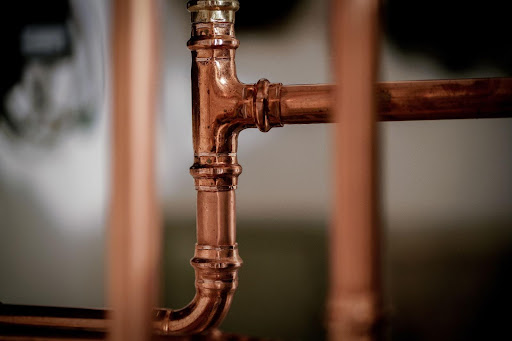
Safety considerations
Safety is paramount when it comes to gas line installation, as there are significant risks associated with gas leaks or improper installation. Here are key safety considerations that must be adhered to during the installation process:
Adhering to local codes and regulations
The installation must comply with local building codes and safety regulations. These codes are in place to ensure that gas lines are installed safely and minimize risks to homeowners.
Selecting the right materials
The professionals will use the right materials. They should be suitable for the type of gas being used and the specific conditions of the installation site.
Detecting leaks
All gas line installations should include thorough leak detection procedures. This typically involves pressure testing the lines with air or inert gas before introducing the actual gas supply.
Adequate ventilation
Ensuring proper ventilation in areas where gas appliances are installed is crucial to prevent the buildup of gas in the event of a minor leak.
Emergency shut-off valve installation
Installing an easily accessible emergency shut-off valve is essential so that you can quickly and easily shut off the gas supply.
Clearly mark gas lanes
Gas lines, especially those buried underground, should be clearly marked to prevent accidental damage during any future excavation or construction work.
Choosing the right professional for installation
Choosing the right professional for gas line installation is a critical decision that impacts the safety and effectiveness of your system. Here are key factors to consider when selecting a professional for this important task:
Licensing and certification
Ensure the professional is licensed to work on gas lines in your area. Licensed plumbers or gas line installers have the training and qualifications necessary to perform the job safely and in compliance with local regulations.
Experience and sub-specialization
Look for a professional with substantial experience in gas line installation, particularly in residential settings. Experience in your specific type of project is a plus.
Insurance and bonding
A professional installer should have liability insurance and be bonded. This protects you in case of accidents or damage to your property during the installation process.
Knowledge of local codes
The professional should have a thorough understanding of local building codes and regulations related to gas lines. This will help ensure that your installation is compliant and safe.
Estimates and pricing
Obtain detailed estimates from several professionals. Be cautious of quotes that are significantly lower than others, as this might indicate a compromise in quality or hidden costs.
After-service support
Check if the professional offers after-service support. This includes handling any issues post-installation and providing regular maintenance services.
Contract and warranty
Ensure that you get a written contract detailing the scope of work, cost, timeline, and warranty information. A warranty will provide peace of mind regarding the quality of the work.
By carefully evaluating these factors, you can select a gas line installation professional who will do the job well and ensure the safety and longevity of your gas line system.
Gas line installation with Salisbury Plumbing
If you’re considering gas line installation for your home, remember that the choice of who handles this task is as important as the project itself. For peace of mind and the assurance of safety and quality, look no further than Salisbury Plumbing.
With our experienced team, commitment to excellence, and deep understanding of gas line systems, we stand ready to bring top-notch service to your doorstep. We prioritize your safety, comply with all regulations, and ensure a seamless installation process.
Don’t leave such a crucial aspect of your home to chance. Reach out to Salisbury Plumbing today for your gas line installation needs, and take the first step towards a safe, efficient, and worry-free experience.
toto slot

